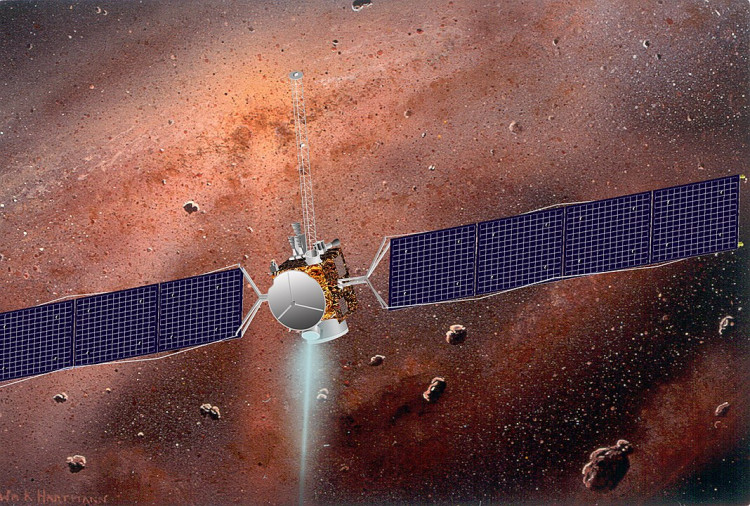The United Arab Emirates revealed plans on Tuesday to send a probe to an asteroid between Mars and Jupiter to collect data on the origins of the universe, marking the first mission of its kind in the oil-rich nation's space program.
If the landing is successful, the UAE will join the EU, Japan, and the U.S. as members of an exclusive club, which have completed the incredible feat. As long as the probe's batteries are charged, it will remain on the asteroid and transmit information about its composition to Earth.
It will be the UAE's second interplanetary mission; the first, the Emirates Mars Mission, launched an orbiter named Hope to Mars in July 2020.
Hope is still active and well, and the upcoming asteroid mission will build on its successes, UAE officials said.
"Our goal is clear: to accelerate the development of innovation and knowledge-based enterprises in the Emirates," Sarah Al Amiri, chair of the UAE Space Agency, said.
The asteroid expedition, whose name has yet to be revealed, will launch in 2028 if everything goes according to plan. In mid-2028 and mid-2029, it will undertake speed-boosting flybys of Venus and Earth, respectively, before reaching the main asteroid belt between Mars and Jupiter in 2030.
Over the course of its journey, the probe will explore seven different asteroids up close, culminating in a landing on a space rock in 2033.
That last step is a bit of a stretch. Only a few missions, including NASA's Near-Earth Asteroid Rendezvous (NEAR) Shoemaker and OSIRIS-REx spacecraft, as well as Japan's Hayabusa1 and Hayabusa2 probes, have successfully landed on an asteroid.
The UAE's space agency has announced that it will collaborate on the project with the University of Colorado's Laboratory for Atmospheric and Space Physics. It didn't say how much the effort would cost or what elements of the asteroid it planned to explore right away.
Al-Amiri said discussions about what equipment the spacecraft will carry are ongoing, which will affect what features it can observe.
According to NASA, the solar system has 1.1 million known asteroids that are remnants of its formation. The majority of them orbit the sun between Mars and Jupiter, which is the target of the Emirati mission. Their composition contains the elements that make up the world as we know it.






